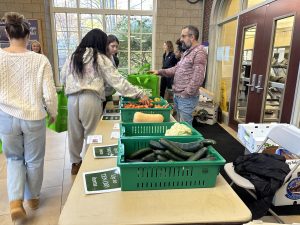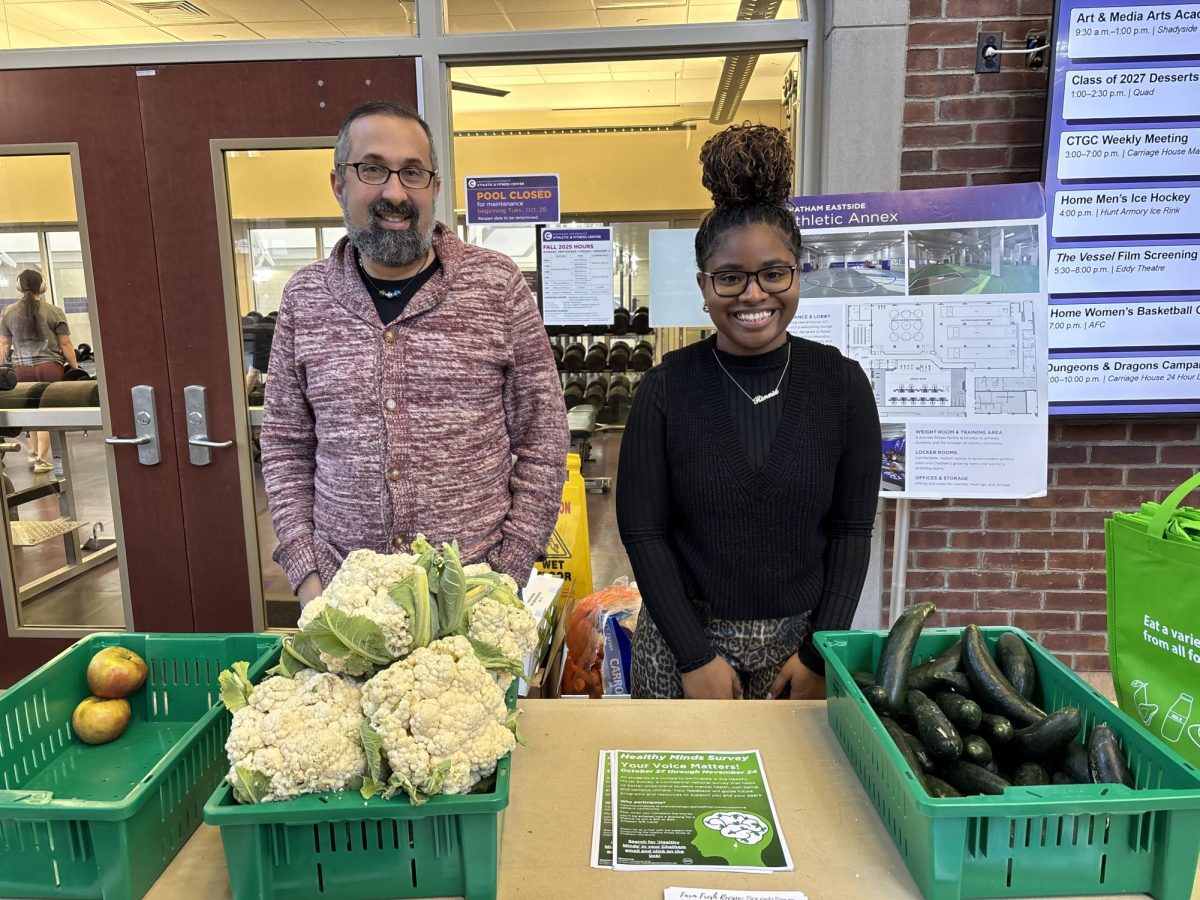Chatham students, faculty and staff have access to free produce through an initiative sponsored by the Greater Pittsburgh Community Food Bank and the Pennsylvania Hunger-Free Campus Initiative. The monthly distribution is usually held from 1 p.m. to 3 p.m. outside at the front of the AFC (Athletic and Fitness Center) and is coordinated by the Office of Student Health Services.
As a Chatham student, I appreciate their dedication and efforts every month to continue the monthly produce distribution. This free produce provides students in need with access to fresh produce.
According to the Pennsylvania Hunger-Free Campus Initiative and the Pennsylvania Department of Education, over one-third of students know someone who dropped out of college due to food insecurity. Chatham holds a PA Hunger-Free Campus+ designation, meaning that it takes part in a statewide initiative to decrease food insecurity for college students.
Especially now, as the status and future of Supplemental Nutrition Assistance Program (SNAP) benefits are uncertain, it’s essential to have alternative options for those community members who might need it.
Every month, the produce selection changes depending on the season and what is available. I helped restock produce during last month’s distribution. I was grateful to have the opportunity to volunteer alongside the Office of Student Health Services.
As someone who works part-time at Giant Eagle, in the produce department, I am grateful to volunteer with the produce distribution. At Giant Eagle in order, to prevent food waste, we reduce the cost of produce or products that are about to expire. For instance, eggs or poultry items by at least fifty percent of the original cost. Additionally, each department attempts to utilize “Flashfood” in order to reduce food waste.

These products are then posted to an app called “Flashfood,” which is free to download in the app store. Upon downloading the app, you will need to select your local Giant Eagle store to see what they have posted. “Flashfood” is a valuable resource, because it can help you reduce your weekly food expenses, while also encouraging conscious consumerism.
Not only is the Office of Student Health Services working to provide quality produce to members of the Chatham community free of cost, but it is also reducing the overall amount of food waste within our community by promoting sustainable consumption.
One-third of food produced within the United States is never consumed. Once the food is in a landfill it finally decays, which then releases methane into the environment and contributes to and escalates global warming, according to the Environmental Protection Agency (EPA).
Chatham and the Greater Pittsburgh Community Food Bank are guaranteeing that community members have access to a wide selection of seasonal vegetables, and that those vegetables do not go to waste.
Inflation is making it more difficult to eat healthy. As prices continue to rise, fresh food has become quite inaccessible to college students. Instead, students often choose more affordable options that are easier meals, such as ramen noodles and macaroni and cheese.
Yet once a month, I am grateful that Chatham provides students, faculty and staff with free produce as a conscious effort to reduce food insecurity among our community.



